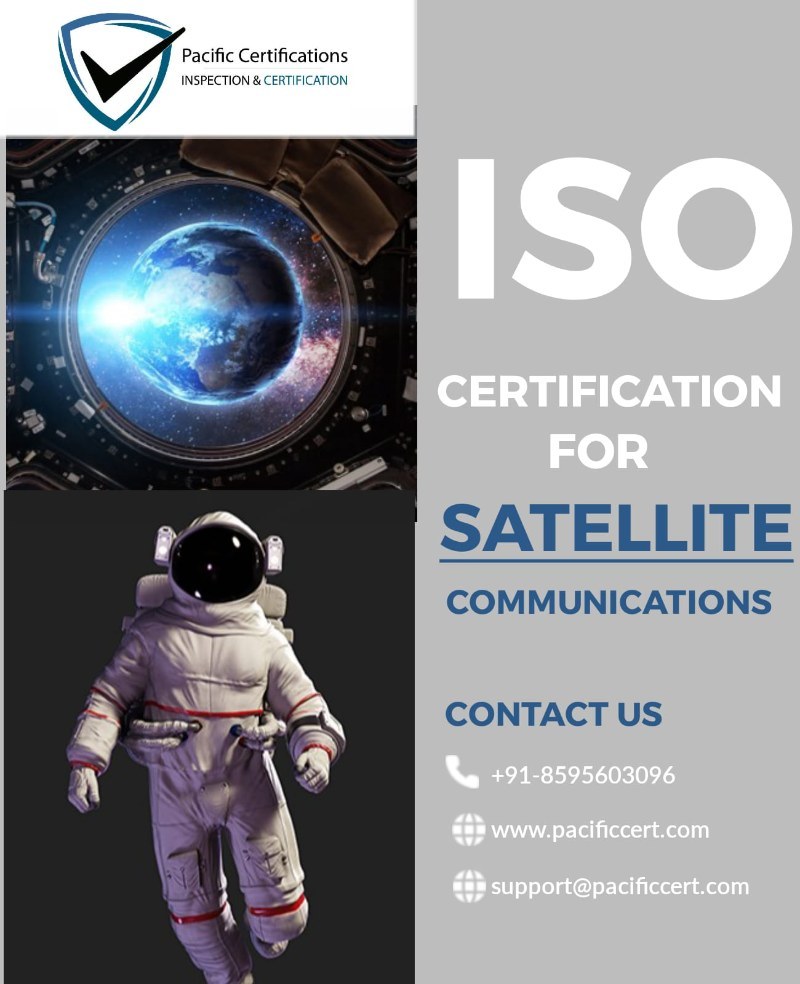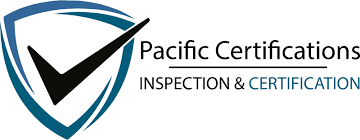ISO Certifications for Satellite Communications, Requirements and Benefits

Introduction
Satellite communications underpin critical global connectivity. From broadcasting, navigation, and weather monitoring to defense, aviation, maritime, disaster response, and broadband services in remote regions, satellite operators manage complex systems that must function reliably across harsh and high-risk environments. These operations span spacecraft design, launch coordination, ground stations, network control centers, data processing, and customer service delivery.
As reliance on satellite connectivity increases, expectations around service availability, cybersecurity, safety, environmental responsibility, and continuity of operations have intensified. A single satellite anomaly, ground station failure, or cyber incident can disrupt services across continents. At the same time, regulators, enterprise customers, and governments demand demonstrable governance, resilience, and compliance aligned with international best practices.
With global satellite capacity expanding rapidly and constellations growing in size and complexity, satellite communications providers must rely on disciplined management systems rather than informal operational controls. ISO certifications provide internationally recognized frameworks that help satellite operators standardize processes, manage risk, protect data, and demonstrate reliability in a mission-critical industry.
In satellite communications, trust is measured not in milliseconds, but in uninterrupted signals that span the planet.
Quick Summary
ISO certifications help satellite communications organizations improve operational reliability, protect mission-critical data, manage safety and environmental risks, and ensure continuity of services. The most relevant standards include ISO 9001, ISO/IEC 27001, ISO 22301, ISO 45001, ISO 14001, ISO 50001, and ISO 31000. Certification reassures regulators, governments, enterprise customers, and partners that satellite operations are controlled, secure, and resilient.
For more information on how we can assist your satellite communications operations with ISO certifications, please contact us at [email protected].
Applicable ISO Standards for Satellite Communications
Satellite communications operations involve quality control, information security, safety, energy use, and continuity planning across space and ground segments. Multiple ISO standards apply because satellite services are part of global critical infrastructure. Below are the key applicable ISO standards for satellite communications:
ISO 9001: Quality Management Systems (QMS)
ISO 9001 helps satellite operators standardize processes across mission planning, satellite control, ground station operations, service provisioning, and customer support. It ensures consistent execution of critical activities and reduces the risk of human or process-related failures affecting service availability.
ISO 14001:2015 (Environmental Management System)
Satellite operators manage energy-intensive facilities and large antenna installations. ISO 14001 supports responsible environmental management, regulatory compliance, and mitigation of environmental impacts related to ground infrastructure.
ISO 27001: Information Security Management Systems (ISMS)
Satellite systems depend on secure command and control. ISO/IEC 27001 provides a structured approach to protecting sensitive data such as satellite telemetry, encryption keys, customer traffic, and operational systems from cyber threats and unauthorized access.
ISO 45001:2018 (Occupational Health and Safety Management System)
Ground station and network operations involve electrical systems, RF exposure, working at heights, and 24/7 operational environments. ISO 45001 helps manage occupational hazards and protect engineers, technicians, and operations staff.
ISO 50001:2018 (Energy Management System)
Energy consumption is significant in satellite control centers and teleport facilities. ISO 50001 provides a framework to monitor energy use, improve efficiency, and reduce operational costs while supporting sustainability commitments.
ISO 9100 (Aerospace Quality Management Systems):
ISO 9100 addresses the unique quality control needs of satellite and space systems manufacturers. It covers the entire supply chain, from the design and development of space systems to production and support, ensuring that aerospace-specific risks, regulations, and quality requirements are met consistently.
ISO 24113 (Space Debris Mitigation Requirements):
This standard establishes guidelines for minimizing the creation of space debris during satellite launches and operations.
ISO 19683 (Space Systems – Design Qualification and Acceptance Tests for Small Satellites):
This standard outlines the design and testing requirements for small satellites, ensuring that they meet operational and safety requirements before launch.
ISO 14620 (Space Systems – Safety Requirements):
ISO 14620 provides safety guidelines for space systems, covering the entire life cycle of a satellite or spacecraft, from design to decommissioning. It ensures that safety risks are mitigated.
Click here to find out more applicable standards to your industry
What are the requirements of ISO Certifications for Satellite Communications?
Understanding ISO requirements helps satellite operators implement systems that strengthen real operational resilience rather than adding administrative burden. Below is an overview of the general and standard-specific requirements.
General requirements:
Covering satellite control, ground station operations, network management, and customer services
Written commitments on quality, safety, security, and environmental responsibility
Identifying risks such as satellite anomalies, cyber threats, equipment failure, and service disruption
Standardizing procedures for mission control, maintenance, and incident response
Ensuring staff competence, training, and authorization
Tracking KPIs such as uptime, incident response times, and service availability
Maintaining logs of operations, anomalies, incidents, and audits
Conducting periodic internal audits and management reviews
Specific requirements:
ISO 9001:2015 – QMS Requirements
Understanding customer, regulatory, and service level requirements
Establishing leadership accountability for service reliability
Planning actions to manage operational risks and improvements
Ensuring controlled procedures and competent personnel
Monitoring performance and driving continual improvement
ISO/IEC 27001:2022 – ISMS Requirements
Identifying information assets including satellite command systems
Assessing cybersecurity risks and threats
Implementing access control, encryption, and monitoring
Establishing incident response and recovery mechanisms
ISO 22301:2019 – BCMS Requirements
Identifying critical satellite and ground services
Conducting business impact analysis
Developing continuity and disaster recovery plans
Testing and reviewing continuity capabilities
Tip:Satellite operators often begin with ISO 9001 to stabilize mission and service processes, followed by ISO/IEC 27001 to secure command and data systems. ISO 22301 becomes essential as reliance on uninterrupted connectivity increases.
Looking for ISO certification for your satellite communications operations? Email us at [email protected].
What are the benefits of ISO Certifications for Satellite Communications?
Below are the key benefits of implementing ISO standards into satellite communications operations:
Higher service reliability and availability, as standardized mission control and network processes reduce operational errors and service interruptions.
Stronger protection of mission-critical data and systems, lowering exposure to cyber threats targeting satellite command, telemetry, and customer traffic.
Improved resilience during failures or disruptions, enabling faster recovery from ground station outages, cyber incidents, or environmental events.
Safer working environments for technical staff, reducing occupational risks associated with electrical systems, RF exposure, and round-the-clock operations.
Better control over energy use and operational costs, supporting efficiency improvements in control centers and teleport facilities.
Greater confidence from governments and enterprise customers, as ISO certification demonstrates disciplined governance and international best-practice alignment.
The satellite communications sector is expanding rapidly. Global satellite services revenue exceeded USD 300 billion in 2023 and is projected to surpass USD 450 billion by 2030, driven by broadband connectivity, earth observation, defense applications, and low-earth-orbit (LEO) constellations.
The number of active satellites has grown sharply, with more than 8,000 operational satellites in orbit by 2024, a figure expected to more than double by 2030. This growth increases system complexity and heightens the importance of structured operational control, cybersecurity, and continuity planning.
Cybersecurity is a growing concern, with satellite systems increasingly targeted as critical infrastructure. Industry analyses report a steady rise in attempted cyber intrusions against space and ground segments, pushing information security management to the forefront of satellite governance.
Energy efficiency and sustainability are also gaining attention as ground infrastructure expands. Studies show that structured energy management programs can deliver 10–20% reductions in energy consumption at control and teleport facilities over three to five years.
How Pacific Certifications Can Help?
Pacific Certifications, accredited by ABIS, acts as an independent certification body for satellite communications organizations. We conduct impartial audits to assess whether management systems and operational practices conform to applicable ISO standards, based strictly on documented evidence and real operational controls.
We support satellite operators through:
Independent certification audits conducted in accordance with ISO/IEC 17021
Objective assessment of mission operations, safety, and information security controls
Clear audit reporting and certification decisions
Issuance of internationally recognized ISO certificates
Surveillance and recertification audits to maintain certification validity
Contact Us
If you need support with ISO certification for your satellite communications operations, contact [email protected]or +91-8595603096.
Author: Seema
Read more: Pacific Blogs

